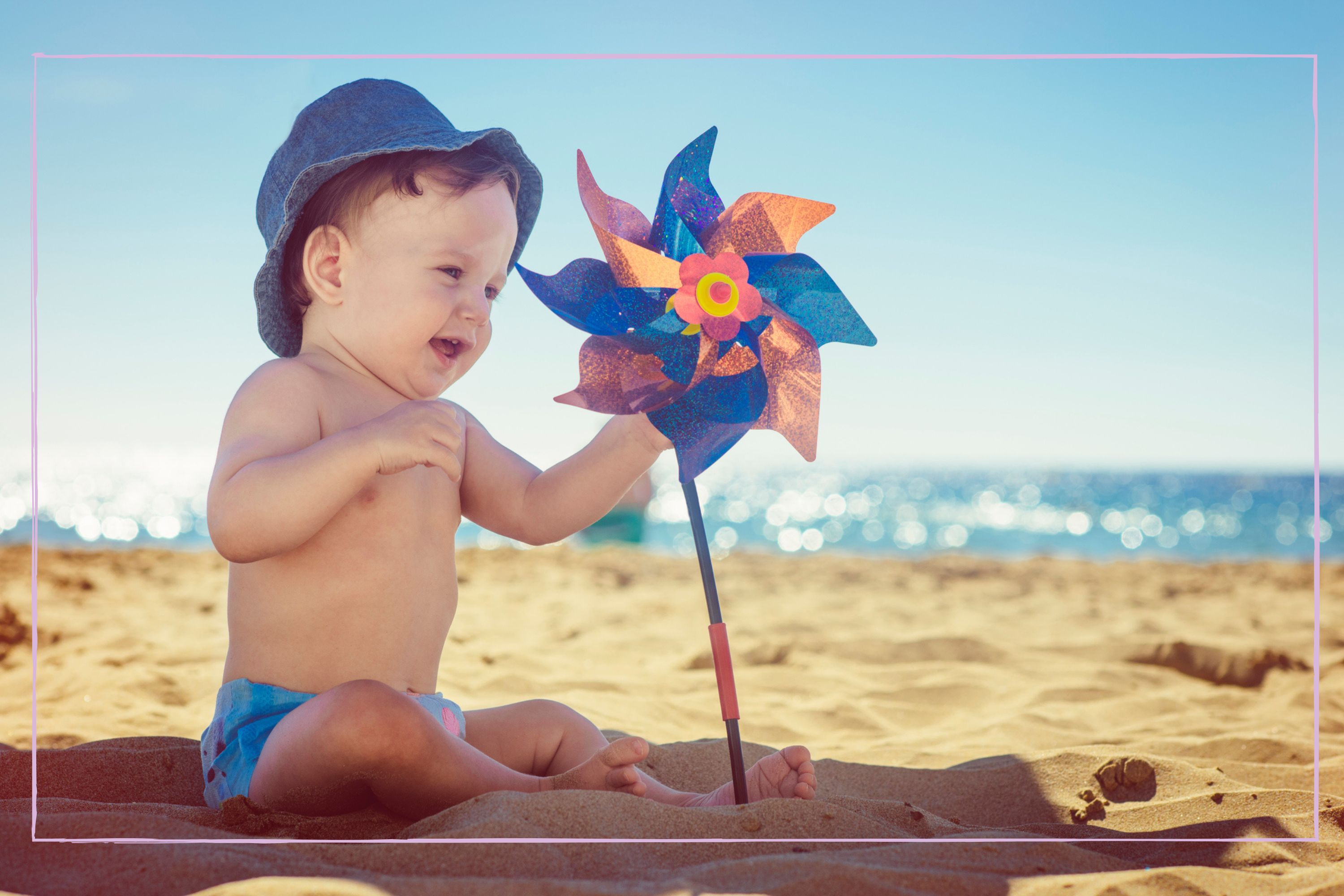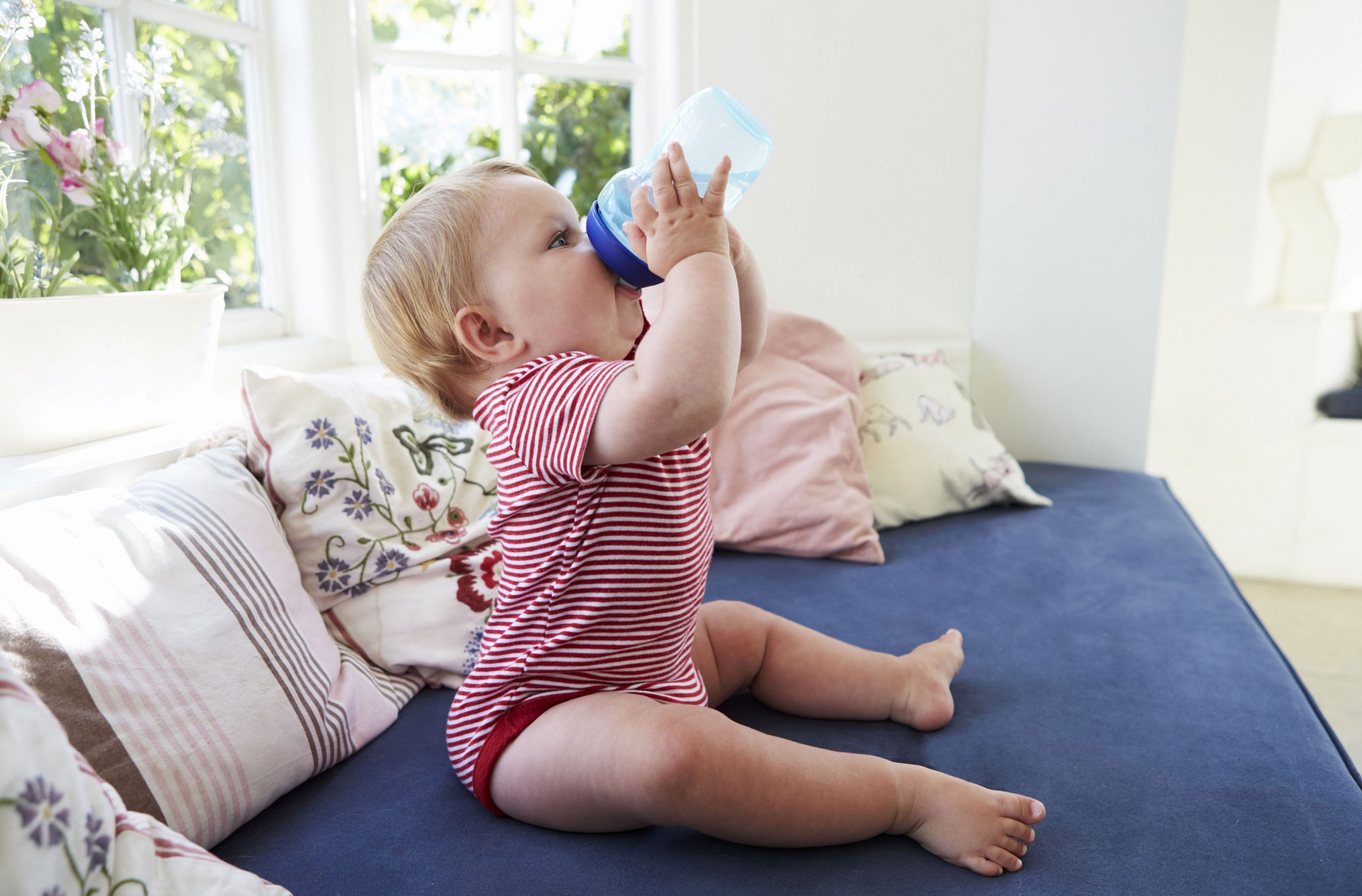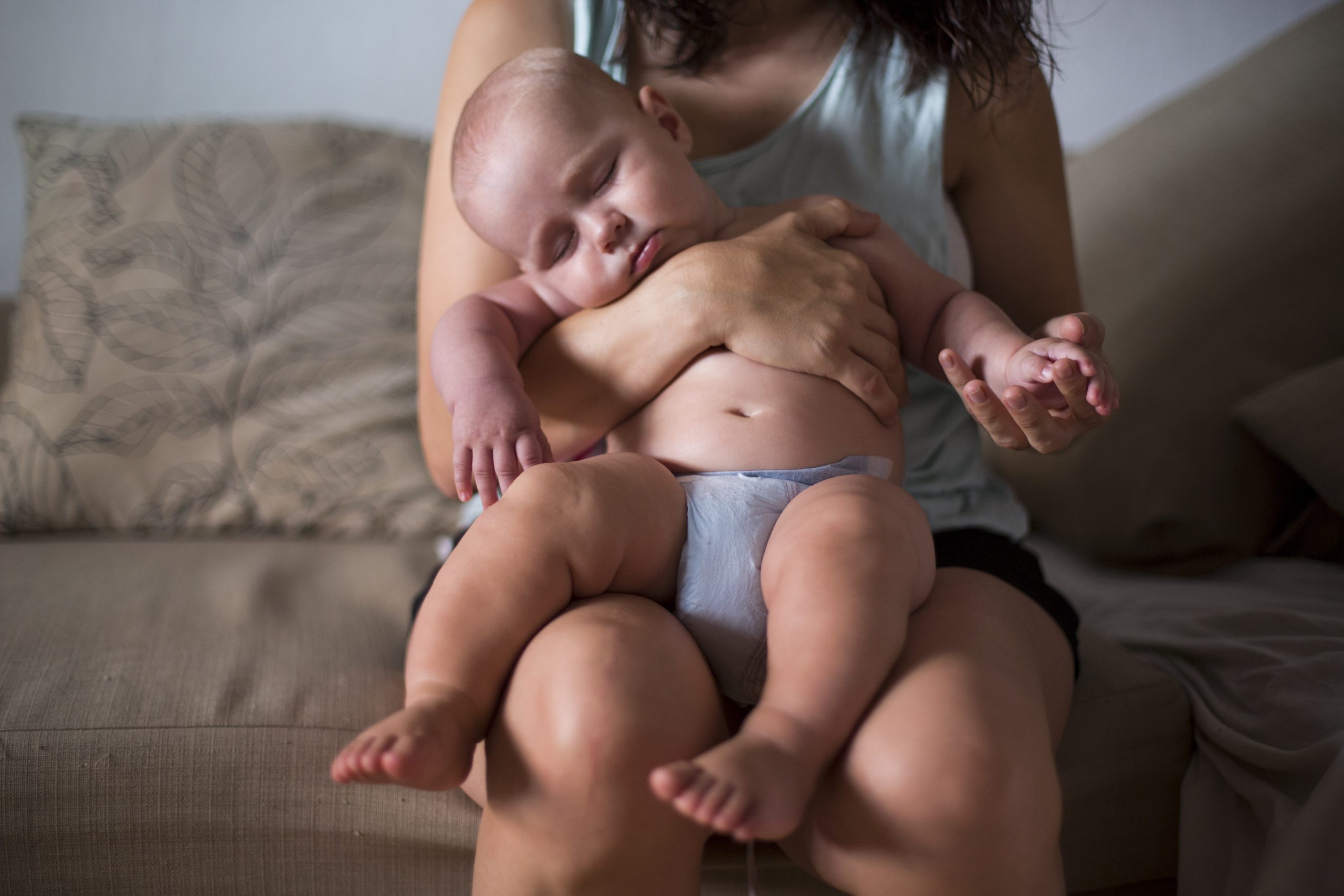How to cool a baby down in hot weather: 10 tips every parent needs to know
Experts share tips to keep your little one comfortable when the temperatures soar


Parenting advice, hot topics, best buys and family finance tips delivered straight to your inbox.
You are now subscribed
Your newsletter sign-up was successful
When the temperatures rise and you have a baby to care for, keeping them cool can be a cause for concern - we ask experts for top tips to keep your infant comfortable in the heat.
When the sun comes out, choosing the best sun creams for you and the best sunscreen for your kids goes high on the priority list. You'll also want to check any old sun creams you're using haven't gone out of date, and make sure your application technique ensures you're getting the coverage you need.
Soaring temperatures with a baby to look after presents another factor to be extra-vigilant about - keeping them cool and comfortable. The intense temperatures during a heatwave leave little ones feeling irritable and uncomfortable, but there are simple steps you can take to keep them cool.
We spoke to paediatrician and clinical adviser Dr Sharryn Gardner about this, who explains: "Parents shouldn't immediately panic if their babies or children do get hot and bothered on warm days - it can often be easily remedied. However, what's most vital is knowing how to prevent things from becoming serious, how to spot the signs of dehydration or heatstroke, and taking quick action if they occur."
We have spoken to the experts, and this is what they have to say about keeping your baby cool when the weather outside is scorching.
How to cool a baby down in hot weather
Experts suggest upping a baby's fluids, making use of a cold compress, offering cool baths, and selecting cool surfaces for activities.
Dressing them in suitable clothing and decreasing night time layers might be something you're already doing, but can be worth getting different perspectives on. Similarly, investing in cotton sheets and effective ventilation and shade in a baby's room, can be more effective than you might think.
Parenting advice, hot topics, best buys and family finance tips delivered straight to your inbox.
Even when you're out and about, having the right pushchair accessories to hand for keeping the baby cool is essential. If the heat at night really does become unbearable, there is always the option to sleep downstairs and put some distance between you and the baby, and that heat that's spent the day rising to your bedrooms.
1. Up their fluids

To cool a baby down in hot weather it’s essential for parents to monitor and increase their baby’s fluid intake during warm weather, says Dr Sharryn.
"On a very hot day, babies may need as much as 50 per cent more breast milk - so ensure they have a lot of opportunities to drink,” she tells us. “If they have formula feeds, they can be offered small amounts of cooled boiled water on top of normal feeds."
Mothers who are breastfeeding should also ensure they keep their fluid levels up to increase their own hydration and subsequent milk supply.
Babies who are weaning or older than 6 months, can take regular sips of water from a cup. Whilst those aged 1 or over can be offered regular water, very diluted fruit juice, or frozen lollies of water, which are "great ways of ensuring they take in fluids and avoid dehydration."
Mum-of-two Lucy said "A heatwave arrived just after my first baby was born. After all the antenatal preparation I'd done, I realised I knew very little about milk supply and how much I should be feeding during hot weather. I wish I'd been equipped with this information to save a lot of worry."
Signs of dehydration in babies to look out include:
- Fewer wet nappies (under 6 in a day)
- Fewer tears when crying
- Lack of energy
- Dry mouth
- Mouth that’s tacky inside
If you are worried that your little one is showing symptoms, it’s important not to worry and to promptly feed them or give them water. Keeping them away from direct sunlight and in the shade will also help maintain healthy hydration levels, says Dr Sharryn.
2. Apply a cold compress
A cold wet flannel or makeshift ice compress is a quick and readily available hack that will help to cool a baby down in hot weather.
If your baby or toddler is overheating, wrap a few ice cubes in a muslin square and use this to cool down your baby in their crib or buggy. Extra large muslin squares are great for this as they create an extra layer between your baby’s skin and the ice pack. You can then nestle this into your baby's buggy and or at home on a hot night in their crib.
Mum-of-two Amy says "these tips proved to be invaluable when I had babies during hot weather. Even now my children are older, I put large ice packs covered in muslins in their beds at night, and freeze towels for them to cover themselves with if they're particularly hot at night."
3. Give them a bath
Experts agree that a splash in the tub is perfect for cooling little ones down during the day or before bed. Lukewarm baths just before bedtime are perfect, with scientists finding that a bath before bed helps to lower the body's core temperature, which in turn aids better sleep.
The NHS also recommends a cool bath before bed and a dip in a shallow paddling pool for older infants - their website states "Playing in a paddling pool is a good way of keeping babies and children cool. Keep the pool in the shade during very hot weather and supervise the children carefully at all times."
4. Choose cool surfaces
It’s good practice to check the temperature of surfaces where you are putting your child down to rest, play or change. Just as important as the materials on your baby’s skin is the surface that you lay them on - make sure it’s not sticky like a changing mat (put a muslin down first when changing in the middle of the night). Similarly, make sure you don't place them on fleecy materials because they're softer - these will be too hot.
It’s also worth investing in special cooling mats that feature hydrophilic cooling gel, which slot into a number of newborn prams and helps keep their temperature down on summer days. What’s more, these mats can be placed in the fridge or freezer for a few hours to improve their cooling effect.
5. Dress them in suitable and minimal clothing
As with adults, what your baby wears on their body during sunny days can drastically affect their temperature.
Certain fabrics and items are better suited for warmer weather as Dr Sharryn notes, and making conscious clothing choices can help cool your baby down in the heat.
"Wearing the right clothing is key. Loose fitting clothes which cover their arms and legs are best," she tells us. "Breathable fabrics such as cotton are advised and you can also find SPF protective clothing in some shops. Wide brimmed baby sun hats (or those with neck flaps) with air vents are also really important, as are sunglasses."
If you've dressed them in appropriate clothing and are still concerned that they are overheated, then don't be afraid to strip off their layers.
"Remove clothes down to the nappy in a completely shaded area or put on fresh natural fibre loose-fitting clothes," adds Dr Sharryn. "You should also remove hats to allow heat loss from all of the head."
6. Light layers at night
Loose, natural layers are also recommended on hot nights when trying to cool your baby down for sleep. Your baby needs one extra layer of thin clothing to what you need. So if you don’t need anything due to the heat, a thin vest top over their nappy should be sufficient and breathable for your little one.
MAM expert health advisor Claire Cripps also has advice regarding this subject. She says "If you’re planning on being indoors, dress your baby in loose-fitting, lightweight clothing, preferably made from cotton, which absorbs perspiration much better than other materials.
A good rule of thumb is to dress your baby the way you’re dressed. If you are wearing shorts and a T-shirt - that will be fine for your baby also! Babies don’t perspire effectively, so they can overheat far more quickly than an adult, which is why you should never leave a baby in a hot room. Even just a few minutes could cause your baby’s temperature to spike."
7. Invest in cotton baby sheets
Cotton sheets have been scientifically proven to improve sleeping in the heat whether you're a baby or fully-fledged adult. In warm weather, change your baby's bottom sheets to cotton rather than nylon.
It's important to make sure the sheet is safely secured in your baby's cot bed, so that there's a reduced risk of the sheet coming loose and covering your little one in the night.
8. Ventilate and shade their bedroom
While it's generally thought to be best to keep windows closed in hot weather, Dr Sharryn says "Keep their bedroom curtains or blinds closed during the day (with windows and doors open) to stop the rooms heating up too much before bed."
Another tip is to invest in a fan for their room which you can turn on ahead of their bedtime.
“If the room is very hot a fan generally just moves hot air about, so a good trick is to freeze a bottle of water and stand it in a bowl in front of the fan straight from the freezer.” Angela suggests. “This will help to cool the air the fan is moving around in the room and by the time the temperature starts to drop the water will have defrosted.
“Start this about half an hour before you put baby to bed so you can check the room temperature is safe for your baby’s bedtime.”
9. Sleep downstairs

If you're in a house remember that heat rises, so a simple solution that parents can try to cool a baby down at night is to switch up where they sleep.
If it's really hot upstairs, change to sleeping in a room downstairs for a while as it will be slightly cooler. As our heatwaves don't tend to last that long, it's likely you'll only have to be in a different room for a couple of days.
Mum-of-two Fran tells us this was a life saver for her. She says "Having a newborn in a heatwave and sleeping in a loft room was never going to work. After one night of feeling stifled in the loft and nobody getting any sleep, me and the baby moved into our downstairs front room - which doesn't get much sun and always feels cool. That was our sleep space for the rest of the heatwave and we were so much more comfortable."
10. Pushchair accessories
Pushchair gadgets and added extras like detachable parasols and fans are a parent’s best friend in the heat.
“Fans clipped to prams or pushchairs can be really handy if you’re out and about,” says Dr Sharryn. This is because they’ll shade your baby without stopping air flow.
One common misconception is to cover your baby’s pushchair or pram with a blanket to keep them cool and shaded - but this is incredibly dangerous.
However, you should never cover the buggy with a blanket or muslin when a baby is inside. It can act as insulation and the temperature can build to 40 degrees in a pram. Instead, use a parasol and buggy fan.
When you are out and about, avoid being out at midday - the worst times to be outside are between 10am and 2pm, this is when the sun is at its strongest and most likely to harm the skin.
If you plan on being outdoors, aim to go outside of these hours, or seek out shady areas. Look for a sheltered spot under a tree or use an umbrella to provide protection.
For more tips, here's how to keep cool during pregnancy, and whether it's safe to sleep with a fan on. We also share the difference between sun stroke and heat exhaustion.

Dr Gardner has worked in paediatric surgery and children's A&E. She's also trained in Solution-Focused Therapy, hypnotherapy and the Blast Technique. She enjoys working with children and witnessing the moment they understand that things can be better.

Lucy is a mum-of-two, multi-award nominated writer and blogger with six years’ of experience writing about parenting, family life, and TV. Lucy has contributed content to PopSugar and moms.com. In the last three years, she has transformed her passion for streaming countless hours of television into specialising in entertainment writing. There is now nothing she loves more than watching the best shows on television and sharing why you - and your kids - should watch them.